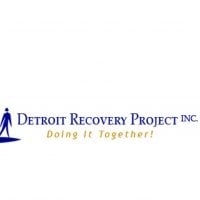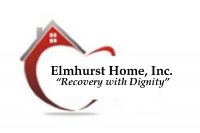Guidance and Prevention Services
Drug Rehab Center in Hamtramck, Michigan
- Substance Abuse
- Opioid Addiction
- Drug Addiction
- Alcoholism
Guidance and Prevention Services in Hamtramck, Michigan offers a range of comprehensive addiction treatment programs that are tailored to each individual's needs and goals, including medication-assisted treatment, residential programs, and specialized programs such as a court-mandated DUI program and an opioid treatment program.
About Guidance and Prevention Services in Michigan
Guidance and Prevention Services in Hamtramck, Michigan provides a comprehensive range of programs and services to help individuals attain lasting sobriety from drug and alcohol abuse. The facilities are staffed by qualified professionals in both the medical and behavioral health fields. Their treatment services are tailored to the individual’s needs and tailored to their goals, to assist them in their journey to recovery and a sober life.
Guidance and Prevention Services in Hamtramck, Michigan offers a wide range of treatment types for addiction and substance abuse, including an initial assessment, treatment planning and coordination, case management, weekly counseling sessions, group sessions, skill building and education, access to peer support services, and referrals to other community resources. Additionally, they also provide medication-assisted treatment programs, which combines medication and behavior therapy to improve overall recovery outcomes. They also offer a residential program for extended and intensive treatment, typically lasting 30 to 90 days.
Guidance and Prevention Services in Hamtramck, Michigan is accredited by the Joint Commission on Accreditation of Healthcare Organizations and is licensed by the Michigan Department of Community Mental Health. They also offer a variety of specialized programs, such as a court-mandated DUI program and an opioid treatment program. Additionally, they have a comprehensive network of referral services, with access to community programs, psychiatric services, substance abuse programs, and employment and housing support.
Genders
Ages
Modality
Additional
Conditions and Issues Treated
It’s not easy getting sober on one’s own, or even going to rehab and escaping the grasp of addiction by oneself. Substance abuse treatment gives addicts a place to stay sober while learning what it takes to quit for good. They will learn from others about what works and what doesn’t work with remaining drug-free.
Treatment centers such as Guidance and Prevention Services focus on the needs of individual addicts to heal them. There is a combination of physical and mental therapies that treat the root cause of the addiction, whether it be family problems, stress, or past traumatic events.
The final benefit of substance abuse treatment is introducing new people who can help in your recovery after you leave Guidance and Prevention Services. Through group therapy sessions with other addicts and attending support meetings once a day, a person will learn how to interact with others and cope with cravings. This is a chance for you to rebuild your social circle healthily after you leave treatment.
Opioid addiction starts when a person becomes addicted to legal or illegal opioids. The addiction can happen quickly, in just a matter of days. Opioid withdrawal can be extremely uncomfortable and lead the user to continue to use even if they want to quit. Stopping using an opioid requires medical observation. Sometimes inpatient treatment with a medically supervised detox is necessary for managing the withdrawal process while learning lasting tools for maintaining recovery. Medications may be used in some cases of opioid addiction.
Opioid addiction is one of Michigan‘s most prominent forms of addiction. It’s treated by detoxifying the body so that the chemicals from the medications no longer impact them and by therapies to correct behavior and target the root of the problem.
Levels of Care Offered
This center offers a variety of custom treatment tailored to individual recovery. Currently available are Aftercare Support, Drug Rehab, Intensive Outpatient, Outpatient, with additional therapies available as listed below.
Addicts who need help with their addiction can enroll in an intensive outpatient program (IOP). But the patient won’t live there during treatment.
IOP involves patients visiting a medical office building regularly for therapy and other services while continuing to live their lives.
IOP is a step up from drug or alcohol detox, but it’s still a phase of recovery, not the end goal. Patients in need of IOP have many options for rehab and treatment.
Outpatient treatment is considered the lower intensity level of addiction treatment. It’s ideal for early phase addiction or lower intensity addictions. It may include weekly sessions instead of daily. It may include weekly sessions instead of daily. Peer group support, 12-step programs, and individual counseling may still be involved but at a lesser frequency than an intensive outpatient program. It is a good choice for someone who doesn’t need to go through a medically supervised detox and who has a supportive home environment. It requires motivation and dedication to commit to the program without constant monitoring.
Aftercare support should take place after outpatient treatment has ended. There are a few different types of aftercare support that patients can seek. These include 12 Step, Self-help groups (AA, NA), Therapeutic communities, Long-term, structured sober living arrangements, and Halfway houses (residential treatment centers).
Therapies & Programs
Individual therapy involves one-on-one sessions between the patient and therapist. It provides patients with a safe environment to openly discuss personal and sensitive issues with the therapist. They find the therapist as someone they can trust. Individual therapy aims to identify the core issues that would have led the patient to substance abuse and address them effectively. The therapist can develop patient-specific customized solutions through individual therapy, which aids speedier recovery.
Couples therapy works with clients and significant others in a professional capacity to improve relationship dynamics. This can be helpful for addicts who are trying to marry the idea of recovery into their work, family, social lives – any aspect that has to do with relationships.
Through counseling sessions, addicts will have an opportunity to talk about their addiction with professional partners. These partners can offer feedback and advice on how to get sober while keeping healthy relationships intact. A good couples therapist will help addicts understand their part in an unhealthy relationship dynamic or find ways to deal with anger or resentment from significant others outside of the home.
Family therapy is a group problem-solving that aims to improve communication and relationships between the addict, their family, and sometimes friends. The main goal of family therapy for drug addiction is to create an environment where communication can occur without judgment, hostility, or blame. The therapist is with the family as they learn to communicate differently, especially with the addict when s/he is using. The family can learn to reduce their enabling behavior or rally together and support each other during tough times.
An addict’s family can play a vital part in helping them to avoid relapse because they can spot the warning signs and help them get back on track before it becomes too much of a problem. Family therapy is one of the most effective ways to help addicts stay on the path to long-term sobriety. When a drug addict decides that they want to try and get sober, it takes the support of every person they love to succeed. It can be incredibly difficult for loved ones to watch an addict go through the pain and suffering of withdrawal, but by being there with them and supporting them, they can help to make sure that the addiction never returns.
Groups typically involve meetings with other recovering addicts who can relate to one another’s experiences. They might meet in person or online and typically focus on the process of staying sober rather than overcoming a specific addiction.
In these groups managed by Guidance and Prevention Services, addicts can build a sense of community and develop strong emotional connections with others who understand what they are going through. These beneficial relationships can help addicts overcome their cravings and prevent relapse at any point during the recovery process.
Payment Options Accepted
For specific insurance or payment methods please contact us.
Additional Details
Specifics, location, and helpful extra information.
Hamtramck, Michigan 48212 Phone Number(313) 368-9877 Meta DetailsUpdated November 25, 2023
Staff Verified
Guidance and Prevention Services Patient Reviews
There are no reviews yet. Be the first one to write one.
Hamtramck, Michigan Addiction Information
Michigan has the second-highest rate of drug and alcohol abuse in the nation. Heroin is linked to more than 50% of the state's hepatitis C cases. Marijuana is the drug most often associated with crimes in Michigan, followed by methamphetamines. Opioids alone are responsible for almost 20% of all drug overdose deaths in Michigan.
Hamtramck, Michigan, is a city that is well known for its high rates of drug addiction and abuse. In 2015, there were 1,521 overdose deaths in Hamtramck. When choosing a treatment facility, some factors include the type of addiction, the severity of the addiction, and the person's lifestyle. The most common type of treatment facility is an inpatient rehab center.
Treatment in Nearby Cities
- Livonia, MI (15.0 mi.)
- Howell, MI (46.5 mi.)
- Auburn Hills, MI (21.8 mi.)
- Mason, MI (71.6 mi.)
- Saint Johns, MI ( mi.)
Centers near Guidance and Prevention Services




The facility name, logo and brand are the property and registered trademarks of Guidance and Prevention Services, and are being used for identification and informational purposes only. Use of these names, logos and brands shall not imply endorsement. RehabNow.org is not affiliated with or sponsored by Guidance and Prevention Services.


